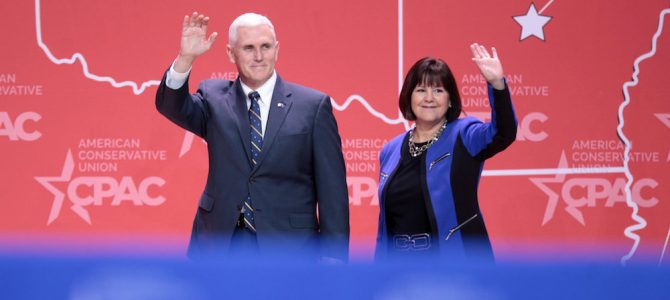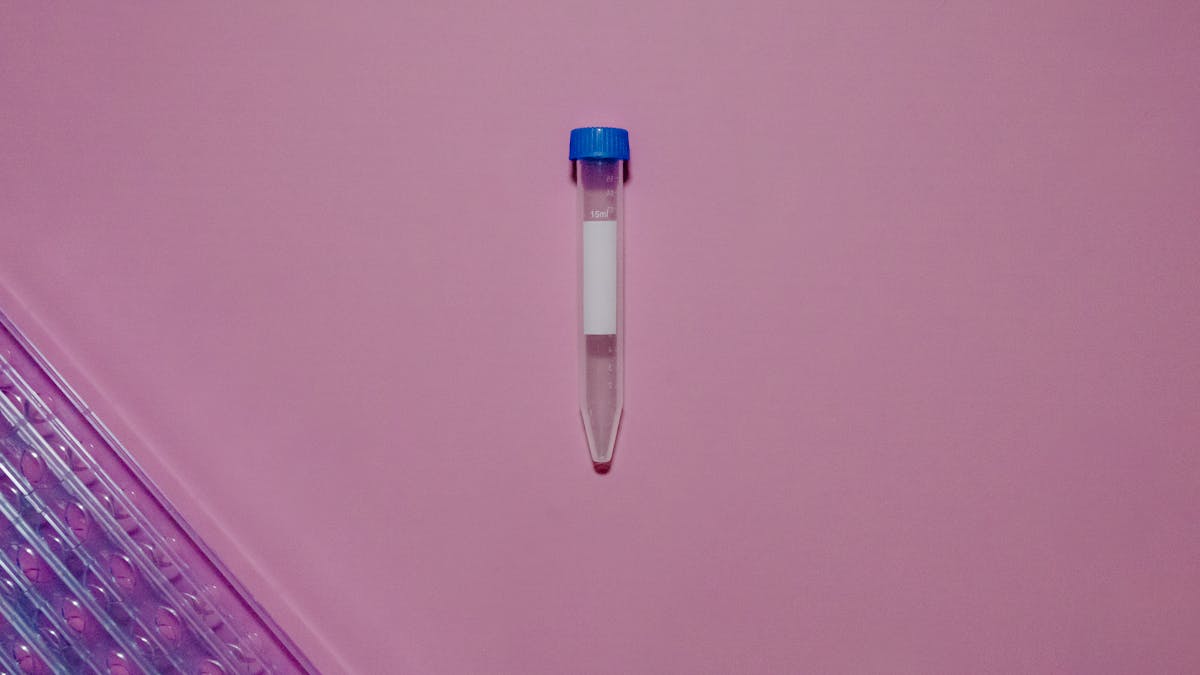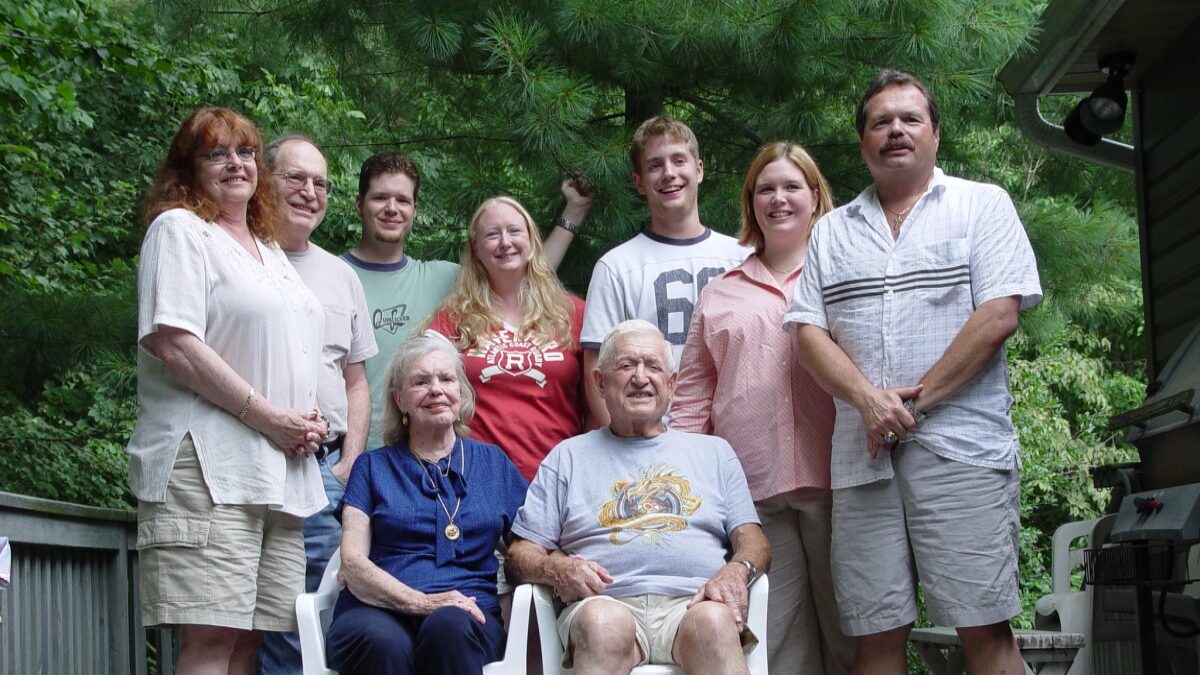
For one in eight American couples, having a baby is anything but straightforward, and that can become an incredibly isolating experience. Infertility remains stigmatized, so affected adults are unlikely to speak openly about their difficulties, even with family and friends. These are the Americans we keep in mind this week, as we mark National Infertility Awareness Week.
After learning the Pences had a history with infertility, I contacted the Second Lady’s office for an interview. Mrs. Pence primarily grants interviews about art therapy—her major initiative as Second Lady—but she graciously made an exception, because as Mrs. Pence remarked during our phone interview, “Any way I can help young women who are having this same issue, I’m glad to.”
For those who have seen the Pences with their three grown children, there may be an assumption that their family of five was somehow predictable. However, as with many families, there’s more to the story.
The Vice President and Mrs. Pence tried for six long years to start their family. They tried medical procedures. They joined an adoption wait list and came close to adopting a little boy, when they learned Mrs. Pence was pregnant with their first child. That son was quickly followed by two daughters, answering the Pences’ prayers for parenthood. Of course, as other couples on their own fertility journeys know, none of this was knowable at the time.
Read on for more Mrs. Pence’s reflections on that period of her life, as well as her thoughts on faith and family.
Melissa Langsam Braunstein: I understand that you and your husband faced some fertility challenges before being blessed with three children. Can you describe what that experience was like for you?
Karen Pence: It took us six years before we were able to get pregnant with our first child. And you know, we had gotten married a little later—I was 28 when I married the Vice President—and so I was 34 before I got pregnant. We were ready to start our family, and it just didn’t happen. And when you experience that, all of your friends are getting pregnant, all of your relatives are getting pregnant, I remember my little niece looked up at me one day and said, “Auntie Karen, why don’t you have any babies?” It can be a very heartbreaking experience, and so for us, we thought, maybe we’re just not going to be a couple that has children.
MB: How did you feel about that?
KP: Well, I’ll tell you, it took us a little while. I had to get to a point where I wanted to adopt a child. And my main worry, which actually was probably not founded on anything, but my main concern about adopting a child was I was afraid of that child being a teenager some day and saying they wanted to go find their real mom, and I was afraid of how I might react to that.
So I mentioned it to a professor of mine, and said you know, “This is a thing that I would worry about.” And he said, “Oh, no. You just approach this from the very beginning, that this is something you’d be willing to do together if they ever reach the point where they want to go find their birth mother.” And he said, “Don’t ever try to compete with the birth mom, just go at it with the child you adopt and say we’re in this with you, and we’ll help you in this journey.” And for some reason, that just clicked with me. So then Mike and I decided, let’s get on an adoption list, and so we did right away and waited until we got the call.
MB: Do you think the difficulty you faced in getting pregnant changed the way you viewed your pregnancies or your children?
KP: You know that’s a great question because that’s something I say all the time. I say, I am a much better mother than I would have been if I hadn’t gone through those struggles. I’m not saying I’m a better mother than someone who didn’t go through those struggles, I’m saying it made me a better mother than I would have been. Because there are days in motherhood where you just want to pull your hair out, and we ended up having three children in three years, so we had three under the age of three for three months.
And I’ve got to tell you, those days, really I was like, I don’t even know if I’m even going to be able to get a shower in today! I would have moments where I’d think, “Wait a minute, you almost didn’t get to have this.” And I think the fact that I realized I might be someone who never could have children, that I cherished the fact that I was able to have children and really valued that a lot more.
MB: How did your faith help you cope with the fertility challenges you faced?
KP: Well, actually, it was a little hard. Because I kept thinking, you know, all I ever wanted to be was to be a mom. I didn’t care about fame or fortune, big house, fancy career, nice car—none of that has ever been important to me. I just wanted to be a mom. And so my main thing was, how could God put this desire in my heart and not bring me kids? And so, I’ve got to tell you, it made me question Him a lot. I kept thinking, we’d be these great parents; we’re ready; we want kids; why don’t You bring us kids?
In retrospect, I look back, and I am so glad that we didn’t have our kids when we wanted to have them. The time that they came along was just the right timing. I even said that to my son’s wife recently. I said, “Boy, Sarah, I bet you’re glad that God didn’t bring Michael along until he did,” because he ended up being her age. So, you know in retrospect, I see His perfect timing, which is always true, but at the time, I just kept thinking, I can’t believe He’s not giving us kids.
MB: What do you feel your role is—if any—in raising awareness about fertility challenges facing American men and women right now?
KP: You know, I just would want to encourage them and let them know, I get it. It hurts; it’s very frustrating. It can really be difficult to deal with.
For us, adoption was a real answer. In fact, we actually did get called by an adoption agency, and they did have a little boy that was going to be born in July. Our son was born the following November, but by the time they called us with a possible child, we already knew that I was pregnant with Michael. And we just felt like it wasn’t right for us to still be on that list of parents who wanted to be considered by the birth parents, and so we withdrew our name. Of course, our son has never forgiven us. He goes, “Really Mom, I could’ve had a brother! Really? What were you thinking?!” But we just felt like God had shown us He was going to bring us a family, and we needed to pull our name off.
But adoption is a real, viable alternative, and I just think I would encourage anybody who is struggling with infertility and considering adoption, you know, start pursuing it. Start looking into it, because it was something you know, once we prayed through it, and I worked through that one issue that I had, we were 100 percent in. And however God was going to bring us a family, it was going to be fine with us, and as it ended up, He brought us three kids boom, boom, boom. And it’s just been wonderful. It’s been such a privilege.
But you know, it’s hard because people who don’t go through infertility, I really don’t think they can really feel what it feels like when you just want that baby more than anything, and it just isn’t happening. We went through a lot of procedures, we went through a lot of struggles with it, and a lot of money, and our doctor just kept saying, “I really don’t know why you’re not having kids. I don’t know why you’re not.” And then finally, it just happened.
So, for us, it was really a matter of just letting God bring us kids when He was ready to bring us kids, and that’s where they come from, and so we just had to wait until He was ready. And now it’s so clear to us that that was the perfect timing, these kids are the perfect kids for us, and we couldn’t be more grateful every day that He gave us that privilege.
MB: Is there anything you’d like to change in terms of how we treat or talk about infertility?
KP: Well, you know, it’s easy for me to sit here and say, “Oh, yes, I’ll be interviewed about infertility,” because it was many years ago, and I have three healthy, grown children now. But at the time, I’ve got to tell you, we didn’t tell anybody. We didn’t tell anybody we were struggling.
In fact, my father-in-law passed away before any of our kids were born, but he came up to us once, and he couldn’t understand why we weren’t having kids yet. He said, “You know, there’s never a good time to have kids. You’ve just got to have kids. They don’t come out as teenagers. You’ll have time to get ready for the teenage years!” And so we finally told him, we said, “You know what, we’ve gone through several procedures, we don’t know what’s going on, but we can’t seem to get pregnant.”
And it was funny, because he just couldn’t understand why we weren’t having kids yet, but we didn’t want to tell anybody, because we didn’t want them to feel like they couldn’t share their joy with us when they got pregnant. We didn’t want any of our friends or family to say, “Oh, how are we going to tell Mike and Karen?” So we said, let’s just keep it to ourselves.
It’s a very personal thing. I would never presume to tell people that if they’re going through it that they should be more open, because at the time, it’s just very difficult. And I think for them just to know there are people out there who understand and get it might just be a little bit of encouragement to people.
MB: What advice would you give to those currently struggling with their own fertility issues?
KP: When I have friends who have shared with me, I’ve actually said, you know, “Just hang in there. It took us six years. So you know, maybe it’s not going to happen in a year or two or three or four, it could be a while, but just hang in there.” But you know, if it’s going to happen, it’s going to happen, and it’s going to happen in God’s time. You know, we were ready as well to just be a really great aunt and uncle, and that would’ve been okay too, if that was what God was calling us to.
So I guess the only advice would be—it does hurt, so I don’t want to say disregard those feelings—but sometimes it takes a while, and you know, just maybe not to let it consume you. We tried not to let it consume us. But you know, when you go through a procedure, and you spend $10,000 and it doesn’t work, it’s really frustrating. It’s really, really frustrating. People just need to go through it in their own way and in their own time.
MB: You and the Vice President hosted fairs to encourage adoption in Indiana during his governorship. Can we expect to see you speaking out about adoption over the next four years?
KP: I think as I get opportunities to encourage people to adopt, I will. You know, I have an initiative that I’m already doing that’s art therapy, and we’re doing a lot with the military, so it’s not like I’m taking on adoption as an initiative, but anytime I can encourage people to adopt, I’m more than willing to do so.
MB: Any final thoughts?
KP: Thanks for bringing awareness to this and encouraging people. I just know it can be a heartbreaking time, and I appreciate you doing this story.









